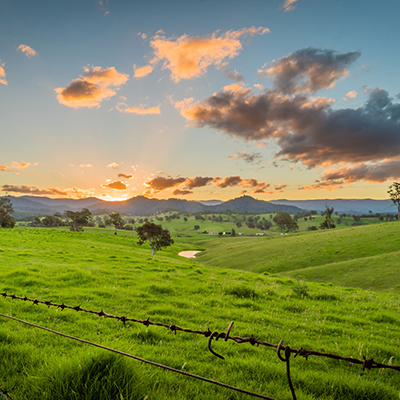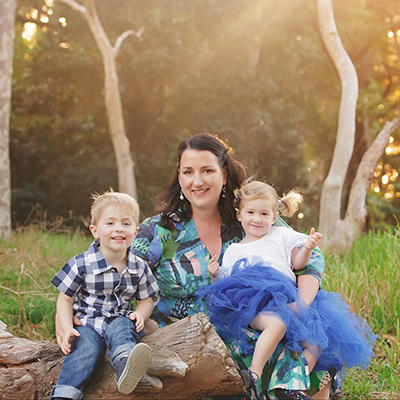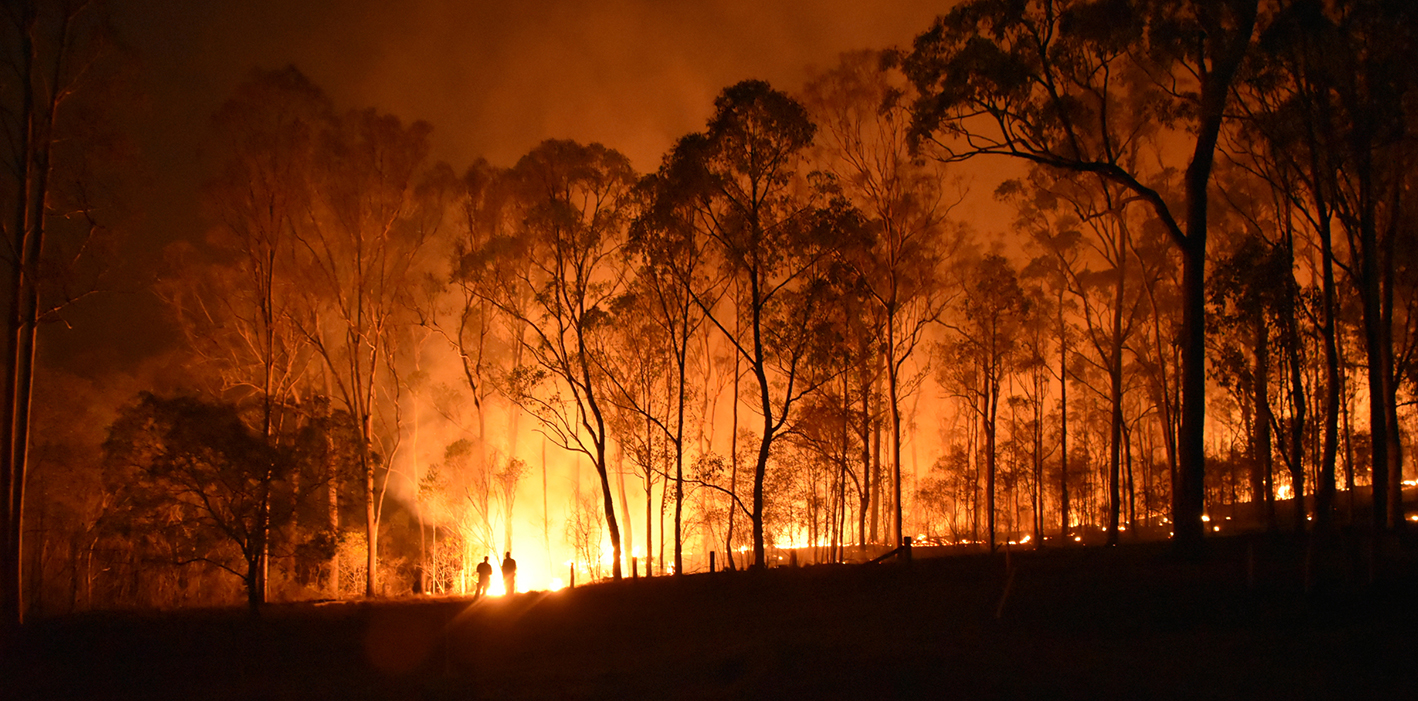As Australia burns, GPs have been hard at work providing comfort and care to disaster stricken rural communities. Here are their stories
In my conversations with GPs affected by the bushfires, I’ve heard the same story over and over. The sheer scale, the unpredictability and the relentlessness of the bushfires has rocked many small communities.
The intense heat of the fire, the number of people evacuated, the lack of warning and the damage to homes feels (or, actually is) unprecedented for many towns.
Doctors have spoken about the practical challenges of operating clinics for days without power, of offering acute mental health care to traumatised and panicky patients, as well as the feeling of community spirit that materialises in dark times.
Many GPs are feeling frustrated that the authorities have failed to include GPs in emergency planning, and, in some cases, have blocked GPs from offering services inside evacuation centres.
After quite a wobbly start, the federal government is now falling over itself to pledge funding for mental health services, with details of the $76 million plan being announced towards the end of January.
While the rural doctors’ associations are sending messages of gratitude to the government, individually, GPs appear to be reserving their praise for when help actually arrives.
For many patients who have lost their homes – particularly those who can’t afford insurance – support isn’t coming fast enough.
What follows are excerpts from my interviews with rural and regional GPs.
Their words tell their stories better than mine.

Lithgow, NSW
Dr Madhu Tamilarasan
“I’ve been back at work for 10 days and I have seen so many people just so affected by what’s happened to them. The trauma is massive.
And one of the things I’ve learned is the trauma seems to be the same whether or not their house survived. That might sound a bit strange, but actually the trauma wasn’t whether the house was lost or not. The trauma was actually about the fear, and, for those people who stay to defend, that physical fear for their lives and the lives of the people they love.
Universally, without exception, every single person (and this includes old timers that have lived through multiple bushfires) has said it is by far and away the worst fire they have ever experienced.
People have been describing the heat. It’s the hottest fire they’ve ever felt or defended against. A lot of my patients have been specifically talking about the noise. The noise of the fire is something that they will never, ever forget as long as they live.
The stock that survived or were kept alive are now dying because of lack of feed. And you would think in a resource rich, wealthy country that we could provide more urgent assistance than has been provided for these people. That, for me, has been the hardest thing to see.
The beauty of when this happens in a small community is that the community just comes together in in a way that’s incredibly special. And as a GP in that small community, that’s just such a lovely thing to be part of.”

Cobargo, NSW
Dr Tracey Lucas-Ramadan
“It took three days to get back here from Melbourne. Along both sides of the highway it was just scorched: black trees, charcoal, dead animals on the roadway. It was very surreal.
When I got to the town, basically all the old wooden buildings that had been there for a long, long time were just razed to the ground.
It was very fortunate that the practice was still unscathed. We opened from Tuesday 7 January operating with no power. We were working with paper and pen and paper scraps, no access to computer records.
I had a little generator, but even just getting fuel to run that generator was a problem because they were reserving fuel, obviously, for the emergency services, which is understandable.
We’re actually now considering getting solar panels installed and having like a Tesla battery wall or something – enough capacity so that if there was a blackout that we can actually run a medical practice independently with no power.
And I found a lot of patients, once they realised we were here, that they were just popping in to say hello, just express their gratefulness at the fact that the practice hadn’t burned down and that we were here giving care.
Being back at work, there’s been many presentations of people with worsened respiratory problems. As the shock starts to wear off, and reality starts to set in, we are certainly going to see a lot more mental health issues.
A lot of the older residents who have been in this area for a long time have said to me that this is absolutely the worst thing that they’ve ever lived through.
They’ve said there were just walls of fire coming down the road or across the paddocks, and you could hear the oxygen just being sucked in. And so, I can only imagine. That would have just been a horrifying experience.”

Mittagong, NSW
Dr Rebekah Hoffman
“What hit me the hardest were the days where people were evacuated quickly, and where they had to leave just with their property, and nobody knew if they had a house to return to.
No one quite knew where they should be going. They had all slept the night on RSL chairs because they didn’t have beds. They had tried to leave with their animals, but they couldn’t get anything larger than a cat or a small dog out. That was really heart wrenching for those couple of days.
Before that weekend, I absolutely had been managing asthma attacks and bronchitis and acute spiritual problems for weeks, if not months. We were getting really good at those here because we were seeing lots and lots of it.
But the escalation in the mental health, which was purely just from uncertainty, was most noticeable. There was, of course, all of the minor injuries – so, broken fingers, minor burns, people who climbed ladders that shouldn’t have – that we were managing as well, but the mental health load was phenomenal.
Access to funding for mental health is always a positive thing and the promise of money is always a positive thing. I am always personally quite cynical until I see what is actually happening on the ground because $76 million is a large, huge sum of money. But for the individual who, at that point in time, doesn’t know if they have a house to go home to, it’s meaningless to them on that day.”
Walwa, Victoria
Dr David Hunt
“Walwa has been under fire threat since New Year’s Eve. Our own property was threatened by the fires but fortunately we saved our house and sheds.
It’s been a very social time with most of the town coming to the Bush Nursing Centre to have their meals because, of course, no food has been able to get into the town until recently.
And, until the beginning of this week [mid-January], there were no communications at all because the landlines were out, the power was out, the mobile tower was out. So, when people came to the Bush Nursing Centre, they were able to exchange news and that was the only news that we were getting.
I’m now beginning to see is the emotional and psychological aftermath of the fires. There are certainly people that are devastated because they’ve lost their home or livestock.
But there are also those people who really haven’t lost anything material but who’ve been running on adrenaline, like some of our volunteers, really hyped up, really working very hard and efficiently. And then when the risk drops (like it has the last couple of days) suddenly, that adrenaline is gone, and people are just feeling flat and down and can’t work out why they are feeling miserable when they should be feeling good.”


